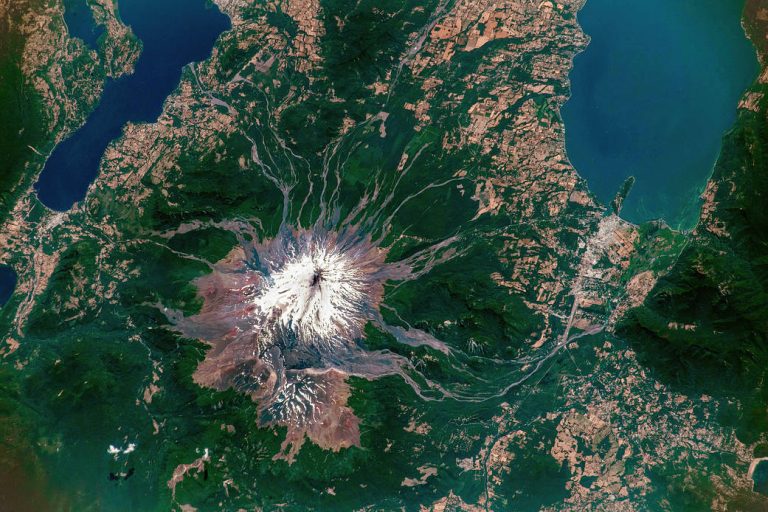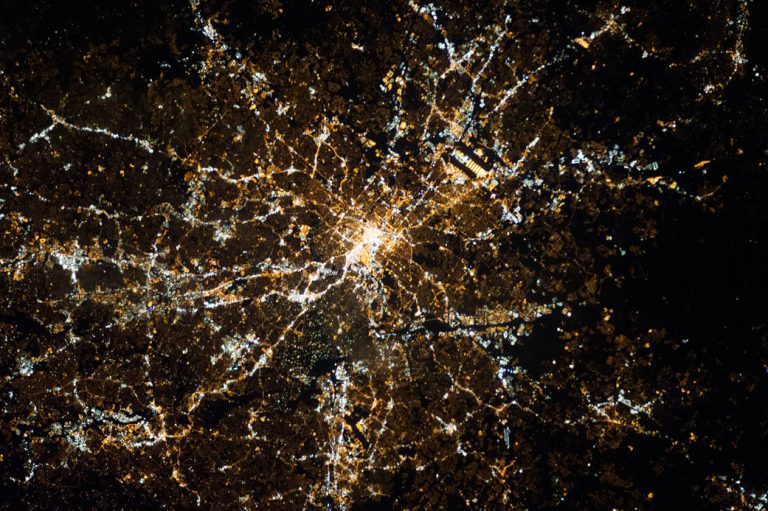观星指南(2023年2月)
2月份的天空会发生什么?
最亮的行星聚集在一起,御夫座和两个你可能想要了解的天狼星星团。

2月份的天空会发生什么?
最亮的行星聚集在一起,御夫座和两个你可能想要了解的天狼星星团。

In this photo from Oct. 14, 2008, a great blue heron stands watch among a pond of water lilies on NASA’s Kennedy Space Center. It is one of 310 species of birds that inhabit the National Merritt Island Wildlife Refuge, which shares a boundary with Kennedy. The marshes and open water of the refuge also provide wintering areas for 23 species of migratory waterfowl, as well as a year-round home for great blue herons, great egrets, wood storks, cormorants, brown pelicans, and other species of marsh and shore birds. Kennedy is responsible for more protected species than any other federal property in the continental United States. Image Credit: NASA/Dimitri Gerondidakis 在这张来自2008年10月14日的照片中,一只大蓝鹭站在NASA肯尼迪航天中心的睡莲池中观望。它是栖息在国家梅里特岛野生动物保护区的310种鸟类之一,该保护区与肯尼迪接壤。该保护区的沼泽和开放水域还为23种迁徙水鸟提供了越冬区,也为大蓝鹭、大白鹭、木鹳、鸬鹚、褐鹈鹕以及其他沼泽和岸鸟提供了全年的栖息地。肯尼迪负责保护的物种比美国大陆任何其他联邦财产都多。 图片来源:NASA/Dimitri Gerondidakis

Chile’s Villarrica volcano emits steam and other volcanic gases in this photo taken from the International Space Station on Jan. 17, 2023. The gases come from a series of minor explosions—called Strombolian eruptions—that have been ongoing at Villarrica since October 2022. Located along Chile’s southern Andes, Villarrica is one of the most active and dangerous volcanoes in South America; it typically erupts every three to six years. Image Credit: NASA 2023年1月17日,在国际空间站拍摄的这张照片中,智利的维拉里卡火山喷出蒸汽和其他火山气体。这些气体来自一系列被称为斯特龙博利亚火山爆发的小型爆炸,自2022年10月以来一直在比利亚里卡持续发生。 比利亚里卡火山位于智利安第斯山脉南部,是南美洲最活跃、最危险的火山之一;它通常每三到六年爆发一次。 影像来源:NASA

Snow and ice cover mountains of the Tien Shan range in this photograph taken from the International Space Station (ISS) on Feb. 9, 2022. The Tien Shan—which means heavenly mountains in Chinese—is one of the largest mountain ranges in the world, extending approximately 2,500 kilometers (1,550 miles) across Central Asia, mostly along the border between Kyrgyzstan and China. The glaciers covering these slopes are a crucial source of water for nearby farmers and residents. See more wintery photos from the ISS. Image Credit: NASA 2022年2月9日,在国际空间站拍摄的这张照片中,冰雪覆盖着天山山脉。天山,中文意思是“天上的山”,是世界上最大的山脉之一,横跨中亚大约2,500公里(1,550英里),主要沿着吉尔吉斯斯坦和中国的边界。覆盖这些斜坡的冰川是附近农民和居民的重要水源。 查看更多来自国际空间站的冬季照片。 图片来源:NASA

Martin Luther King, Jr.’s birthplace, Atlanta, Georgia, is seen on January 20, 2013, in this image from the International Space Station as it flew approximately 240 miles above the city. NASA honors Dr. King’s life and legacy by expanding mission equity, engaging in public service, and sharing knowledge for the benefit of all humanity. Image Credit: NASA 2013年1月20日,国际空间站在亚特兰大上空飞行约240英里时拍摄的这张照片显示了马丁·路德·金的出生地,佐治亚州的亚特兰大。 NASA通过扩大任务公平性、参与公共服务和分享知识以造福全人类来纪念金博士的一生和遗产。 影像来源:NASA

地表水和海洋地形卫星上的摄像机拍摄到了其主要科学仪器在轨道上展开的天线。

2023年1月1日 The Largest Rock in our Solar System Image Credit: NASA, Voyager 1 spacecraft Explanation: There, that dot on the right, that’s the largest rock known in our Solar System. It is larger than every known asteroid, moon, and comet nucleus. It is larger than any other local rocky planet. This rock is so large its gravity makes it into a large ball that holds heavy gases near its surface. (It used to be the largest known rock of any type until the recent discoveries of large dense planets orbiting other stars.) The Voyager 1 spacecraft took the featured picture — famously called Pale Blue Dot — of this giant space rock in 1990 from the outer Solar System. Today, this rock starts another orbit…

1月份的天空会发生什么?
行星会有一些近距离的相遇,冬天的明亮恒星,还有机会观测彗星。

Hawaii’s big island and its two major volcanoes Mauna Kea and Mauna Loa rest under a partly cloudy sky on Feb. 8, 2022, in this view from the International Space Station. Mauna Loa, the world’s largest active volcano had been quiet for nearly 40 years. However, in 2022, the volcano began to stir, showing increased numbers of small earthquakes and subtle swelling of certain land surfaces in September. On Nov. 27, fountains of lava began spurting from the mountain’s Northeast Rift Zone and streams of molten rock flowed to the north. Ten days into the eruption, a NASA aircraft conducted its first flight over the erupting volcano. The aircraft carried NASA’s Uninhabited Aerial Vehicle Synthetic Aperture Radar system, which was used to map the volcano’s…

这张经典的地球照片拍摄于1972年12月7日,由最后一次阿波罗任务阿波罗17号的宇航员拍摄,当时他们正在执行登月任务,前往月球。阿波罗的轨道第一次使拍摄南极冰盖成为可能,如图所示的是南半球厚厚的云层。